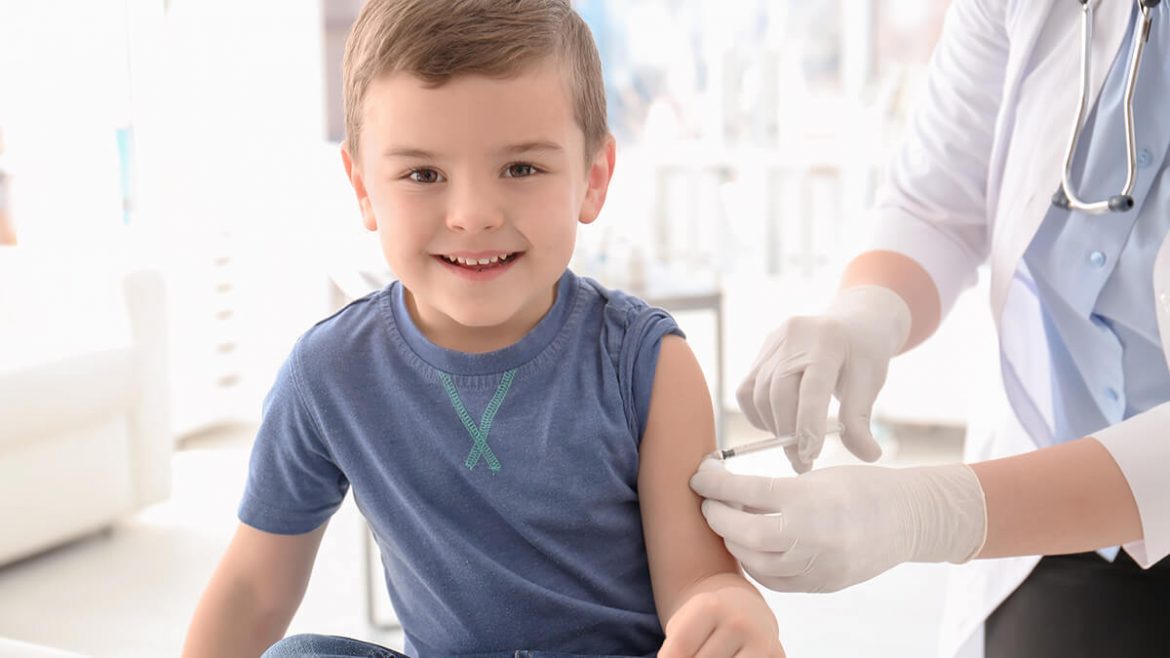Pfizer asked the US on Wednesday to approve extra-low doses of its COVID-19 vaccine for children under the age of five, potentially paving the way for vaccinations to begin as early as March.
The Food and Drug Administration had asked Pfizer and its partner BioNTech to submit their applications earlier than expected in an unusual step.
The country’s 19 million youngsters under the age of five are the only ones who have not yet been vaccinated against the coronavirus. Many parents have advocated for expanding vaccinations to toddlers and preschoolers, particularly since the omicron wave sent a record number of children to the hospital.
If the FDA agrees, Pfizer shots containing just one-tenth of the dose given to adults could be dispensed to children as young as 6 months. Pfizer said Wednesday it had started submitting its data to the FDA and expects to complete the process in a few days.
An open question is how many shots those youngsters will need. Pfizer is testing three shots after two of the extra-low doses turned out to be strong enough for babies but not for preschoolers, and the final data from the study isn’t expected until late March.
That means the FDA may consider whether to authorize two shots for now, with potentially a third shot being cleared later if the study supports it.
The FDA said Tuesday it will convene a panel of independent researchers and physicians in mid-February to help review the Pfizer data. The agency isn’t required to follow the panelists’ advice but their input is a key step in publicly vetting vaccine safety and effectiveness.
The FDA’s ultimate decision could come within the month but that isn’t the only hurdle. The Centers for Disease Control and Prevention also has to sign off.
The Biden administration has been trying to speed the authorization of COVID-19 shots for children, contending vaccinations are critical for opening schools and day care centers and keeping them open, and for freeing up parents from child care duties so they can go back to work.
Yet vaccination rates have been lower among children than in other age groups. As of last week, just 20 per cent of kids ages 5 to 11 and just over half of 12- to 17-year-olds were fully vaccinated, according to the American Academy of Pediatrics. Nearly three-quarters of adults are fully vaccinated.
While young children are far less likely than adults to get severely ill from the coronavirus, it can happen, and pediatric COVID-19 infections are higher than at any other point in the pandemic.
What we’re seeing right now is still a lot of hospitalizations and unfortunately some deaths in this age group, said DrS ean O’Leary of the University of Colorado, who is on the AAP’s infectious disease committee. If the FDA clears vaccinations for these youngsters, that’s going to be really important because all of those hospitalizations and deaths essentially are preventable.
For kids under 5, Pfizer’s study is giving participants two shots three weeks apart, followed by a third dose at least two months later. The company is testing whether the youngsters produce antibody levels similar to those known to protect teens and young adults.
In December, Pfizer announced that children under 2 looked to be protected but that the antibody response was too low in 2- to 4-year-olds. It’s not clear why, but one possibility is that the extra-low dose was a little too low for the preschoolers.
Since the preliminary results showed the shots were safe, Pfizer added a third dose to the testing in hopes of improving protection.
Given how well boosters are working for older age groups, it makes some sense that younger children could benefit from a third shot, O’Leary said.
I certainly can understand where both the company and the FDA are coming from in terms of wanting to move this along, anticipating that there’s going to be a third dose down the line.





